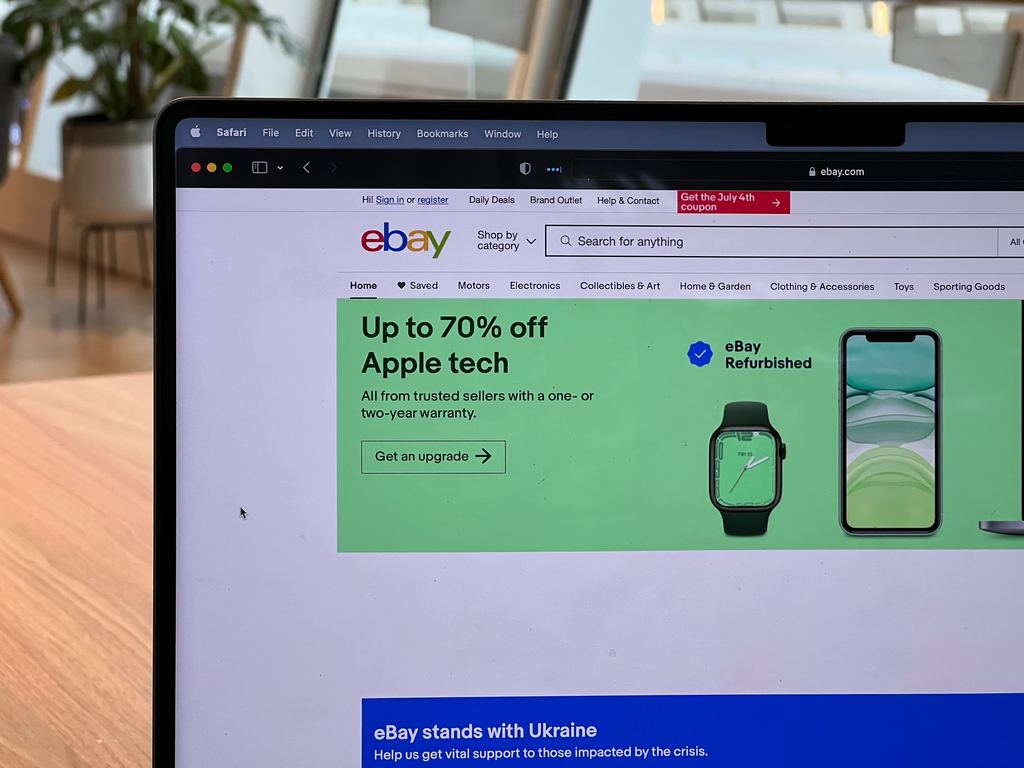From 1 January 2024 online sales platforms like Vinted and Ebay will have to collect information about the sellers and share this with HMRC. This has made quite a few headlines, with a bit of scaremongering that we all will have to declare on our tax returns how we sold that old leather jacket on Ebay. We take a look at what the changes actually mean below and whether you will pay tax when selling online.

What’s changed?
Despite what recent headlines imply, it has always been the case that if you are trading online you need to declare it to HMRC (we discuss below what constitutes “trading”). What is changing is that the online platforms will be reporting to HMRC how much selling individuals are doing. Asking these platforms for information on how much individuals are selling online is an easy way for HMRC to highlight people that are trading but not declaring it for tax.
Will I pay tax when selling online?
This would be very unlikely unless you are selling regularly and at a profit. In order for you to be subject to income tax you would need to be deemed as “trading” by HMRC. This would mean you are acting with a view to making a profit, for example buying items to sell on for more and at enough volume or regularity to demonstrate it is a business.
In order for you to be subject to capital gains tax it would mean you were not “trading” but that you sold it for more than you bought it for and the profits exceeded any unused capital gains allowance (currently £6,000 per annum).
For the vast majority of people they will be selling items at a loss and just to clear space in the house, so this would not be subject to income tax or capital gains tax.
If I am selling online will I need to complete a tax return?
Only if you are trading or you have a capital gain in excess of your annual capital gains allowance. Even if you are trading, if your income (not profit) from this does not exceed £1,000 in the tax year then you do not need to declare it on a tax return.
Some examples
In these situations examples are often useful so we have detailed a couple of the best HMRC ones below:
Example 1
Sally clears out her attic and decides to sell her unwanted items online. This is a one-off activity for Sally, and the items sold are for less or the same as the original purchase price. As these are personal possessions she is unlikely to be trading, but she is able to check the guidance on GOV.UK to find out if she needed to tell HMRC about the income.
Example 2
After making some money from selling unwanted clothes, Josh begins to buy items from car boot sales and charity shops which he then sells through online marketplaces, aiming to sell for more than he paid for them. Josh does this activity consistently, honing his skills of picking up items which he hopes to sell for a profit after fees and postage. This is likely to be trading, and if the turnover is more than £1,000 the profits would be taxable.
What should I do if I think I am trading?
If you think you may be deemed trading you can use the guide on GOV.UK, run through the questions and it will tell you your position. The link for this is:
If you are trading you will need to register for self-assessment with HMRC and declare your trading results. If that’s the case then you will want to make sure you are as tax efficient as possible and that’s where Veritons can help ensure you are getting tax relief for everything you are entitled to. If you wish to discuss your position hit the link below to request your free discovery meeting.
